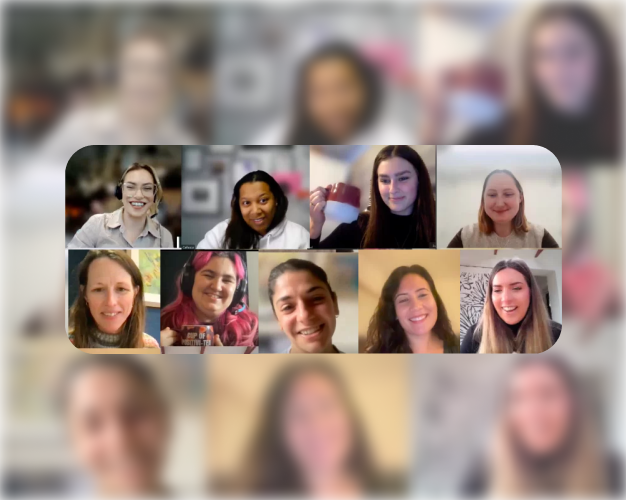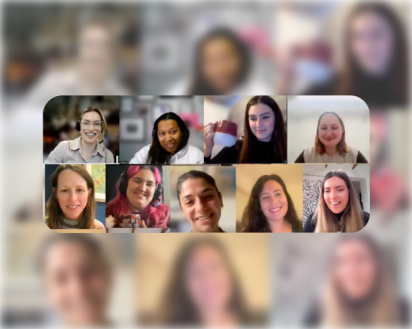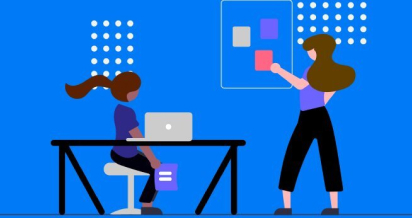In honour of International Women’s Day, we want to shine a spotlight on the incredible women in the Experimentation field that are driving innovation, enhancing user experiences, and ultimately contributing to the success of digital experimentation.
Abi, Content Marketing Executive, and Georgiana, Senior Strategy Consultant at Creative CX chose to make some noise about the amazing women involved in Experimentation by sitting down with women in the industry to share the stories they have to offer from experience in the field.
For the first half of our series, we are delving into insights from Annette Rowson, Web Optimisation Lead, and Marija Drukere, Conversion Rate Optimisation Specialist, at Primark, to discuss their roles in driving experimentation within one of the fashion industry’s leading brands.
Additionally we sat down with Bee Craft, Head of Performance Marketing at Golfbreaks, who has a passion for digital innovation which has fuelled her efforts to educate and advocate for experimentation within the company, as well as driving to involve more women in the sport of golf.
Also joining us was Hannah Tickle, Experimentation Team Lead at Trainline, whose journey from studying Experimental Psychology, to becoming an expert in the field for fourteen years offers invaluable insights.
What was it that initially sparked your interest in experimentation?
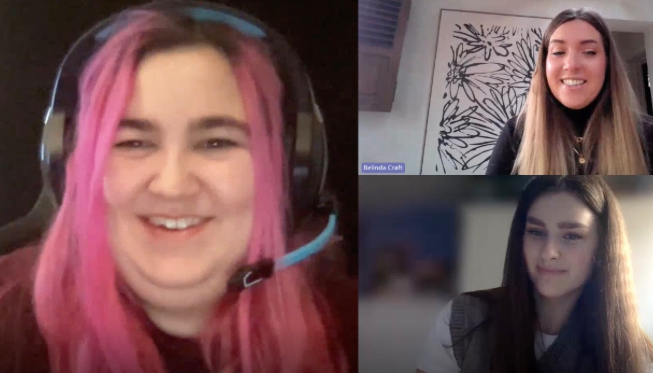
Bee – It was actually just going to events. We have a lot of opinions within the company (I think that’s across all businesses) – everyone has an opinion of what they think should work. We would make a lot of changes to the website and it would almost be like “we think this is the right thing to do,” but there is an amount of risk with that approach. We can’t afford to have fundamental mistakes, especially being a smaller business, so we wanted to mitigate that risk.
Hannah – I just like finding the answers to questions! I really enjoy collecting data, analysing data, but the best bit is finally looking over all the data you’ve collected and seeing it all come together.
What I realised is that what really matters for Experimentation roles, is not that you understand calculus, but it’s more that you understand what is going on, why it matters, and what it tells you. There’s a gap that’s hard to meet and people are put off by the stereotype of not being able to approach stats because it’s too challenging.
What do you think is key for an effective Experimentation programme and what are some common pitfalls you’ve seen?
Marija – So far, including everything I have learned from previous companies, it’s all about stakeholder management and expectations. Lots of people don’t know what to expect and what the timelines are, so it’s always about communicating properly.
At the end of the day, everyone just wants the results, but how to get there is a whole process and I think a lot of people don’t understand that web optimisation is very much a strict process. If you slack in one area, it’s going to fall apart.
Annette – One of the trickiest jobs I had in the past was not having the voice, or not enough of a platform to say no to people. Sometimes you get people who are in leadership where it’s a game of who can shout the loudest – and that was the experiment that went live. Now, I’m quite lucky at Primark where we’re implementing best practises around prioritisation based on data and business impact.
I think for an Experimentation specialist, that can be very demotivating because you know what the process is and you spend all this time gathering as much evidence as possible only for it to get overridden by someone’s opinion. It gets really demotivating.
Hannah – In order to be effective, knowledge needs to be distributed as much as possible, and it needs to be a culture of peer support. Also, people underestimate the value of spending time on their hypothesis, it’s expensive to run a test, so don’t waste time on a redundant question.
Bee – You need to be data driven, which can be challenging. I also think you need to have the means of getting the data, and we’ve invested a lot in data in terms of getting the resourcing that can really dedicate time to that.
Ultimately, it’s just passion to make a change, because if you can get some of those quick wins, you can actually see the impact you are making and you get to share that with the business.
Have you seen changes in the industry’s attitude towards diversity, particularly gender diversity and inclusion. Do you think there have been any positive changes?
Annette – At Primark, when I look at the digital team, it’s very even – if anything it’s more swayed towards women. However, you can still see in certain areas where that diversity does not exist as much in experimentation in general.
To me, it’s more about how we have that inclusion in schools? It’s not just girls, it’s about ethnic minorities and disadvantaged backgrounds.
From a STEM point of view, it’s still really hard. I found it very difficult when I started because it was very clear that I’d be the only girl, or the only girl of ethnic minority.
I still do think it’s something that starts from the beginning. How do we encourage, but also make it something that’s exciting? I mean… I didn’t wake up and decide ‘Oh my god I want to be in experimentation!’ – I fell into it.
That was just curiosity around data that led to that, but are we giving girls a platform when they’re in school to understand what those careers look like.
Now I’m in a position where I have a big network of Experimentation, so there’s things like Women in Experimentation, Women in Data. There’s a lot of champions around it, but the reason why we have champions around it is because it’s still a problem.
Hannah – We are seeing more women on the stage in conferences. I went to one of Bhav’s ‘CRAP Talks’ which was fun, and Bhav has a no return policy so you can’t return as a speaker a second time – I think that’s great. We need more diversity in voices in general in the Experimentation world.
Also, when I went on maternity leave the second time, I felt like I was really accelerating with my career and I was worried that I was going to go away and miss out on all my chances. I was lucky to have my ex-manager at the time who reassured me. I realised that you can’t control what happens when you’re on leave, but your career is unlikely to disintegrate into ruins if you’re on a good trajectory beforehand.
There’s a parents channel at Trainline where people share little snippets, or struggles. It’s been nice to find that community at work. I talk about this all the time because it really has impacted my life, getting the right work/life balance is so important to avoid burnout.
Bee – I think it’s a challenge, and when I’ve thought about this I realise I work in an industry where it is more challenging.
There’s a lot going on within gold to encourage more people to play gold, and work in golf. It’s about encouraging more women to play the sport, as well as work in the industry and actually understand that it isn’t just about men, and it’s actually accessible to lots of people.
So, there’s a big educational piece there, but then also actually in digital. I have read quite a lot around that and I know there are challenges, there’s pay gaps and it’s a challenge with a lack of females in leadership.
We’re actually very lucky at Golfbreaks where we have females in our leadership teams that can really drive that forward, so I’m seeing changes there, but I think there is still a lot of work to be done. I work in a heavily male-dominated industry, there is a challenge to get the balance, and I think its sometimes educating people as to why there needs to be more of a focus on bridging the gap.
Last year (2023) some data came out that uncovered only 26.7% of tech jobs are held by women. What more do you think should be done to encourage women into experimentation?
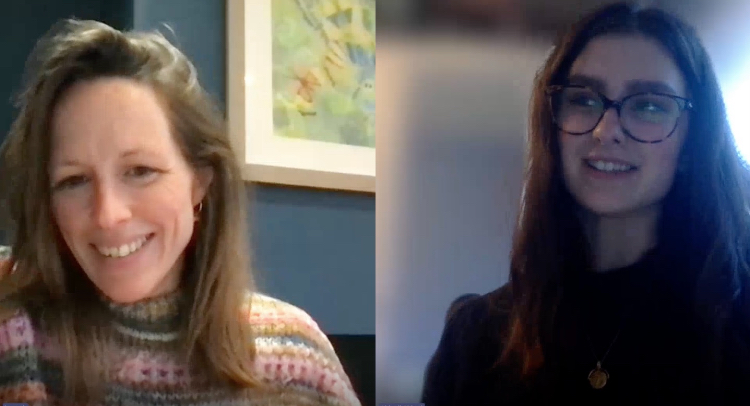
Marija – When I went into my psychology degree, my maths was really bad because I didn’t get the opportunity in school to be good. I didn’t even know what a stimuli was, or statistics, but, I always knew I’m a fast learner and very logical, so to me statistics just made sense.
It’s important to encourage that it’s never too late to learn about Experimentation. I never thought I would be an analytical person, yet here I am.
Annette – When I was being introduced into Experimentation, I just didn’t know what it was, it was still so new. That was less than a decade ago.
What could be happening now… I think it’s a growing of knowledge of what Experimentation is. Hopefully, it will naturally fall into place when that becomes a more centralised team within businesses; when it becomes more of a household name.
Also, if you’re naturally good at statistics in school, college, or university, those establishments should know that Experimentation is a career path available.
Hannah – This isn’t just a barrier for women, but for people with families and childcare responsibilities. At any big company, the expectations are high and people can be, on the surface as inclusive as possible, but working a part-time week is difficult with fitting in. It can come across as not taking part.
There’s a lack of normalising that people shouldn’t be tied to their jobs, whether or not they have children, in order to do a great job. You can have a healthy work/life balance and be an amazing contributor to a company.
Bee – In terms of Experimentation, people might not even be aware of it, or what it does.
Every year we have an intake of students for placements. They’re a key part of the team, especially if I look within Marketing, they sit within our team and they’re making a real change to the website and really contributing to that overall value.
It’s really surprising when we’re doing interviews and you can see how a lot of them still don’t really have much digital education. They may have one or two modules in the digital focus, but it’s still quite limited.
We’re actually looking into digital apprenticeships, because at the end of the day, a university degree is not the be all and end all.
You just need to make it really engaging, because it is really exciting. I remember being really excited about experimentation, which also gave me the boost to really build the business case because I was passionate about it.
What advice would you give to someone who is trying to set up a culture of experimentation within their company?
Annette – I’m constantly working on how we get more data-driven. We’ve recently launched ‘Data and Insight Champions.’ One or two people per team are selected to be the champions of their teams that will actually drive analysis. For example, the content team, most likely naturally not very data driven, but they will have two champions in there, so if someone comes up with an idea, they have that person that can run that data analysis for them.
The other thing is ‘Insight Surgery.’ When I started at Primark, i realised that there wasn’t an open door policy for questions to be asked. Not necessarily just in analytics, but just as in approach. So, we have an hour a week where people come in and ask us questions and we either resolve them, or it’s more of a tutorial on how they can actually do that independent analysis. So, we’re allowing people to upskill within that hour as well.
One of the things I’ve found is you can’t get too emotional about it – you really can’t. You have to separate yourself from it, because what happens when you’re trying to start something new is that it becomes your baby and anything that might go the opposite way of what you want it to – you take it to heart, right? It’s not just about the number of experimentations, especially at the beginning.
Bee – Communication is key and we’ve got that nailed. I think our next big focus is broadening that out and developing that culture of experimentation within the organisation, educating everyone in the organisation because we value everyone’s opinions.
We have a sales and customer service team who speak to our clients all the time, they’re going to get some of the best insights and what we need to do, and our priority is to encourage them to put ideas forward.
It’s about how we’re getting ideas from those people? How are we sharing results? What is the best way of sharing those results? How do we create that culture? I think that’s really gonna be key to taking our experimentation to the next level.
What do you think are some experimentation trends you’re really excited to see coming in the next year?
Bee – The cliche answer is I’m excited, but also a bit fearful, of the impact of AI. I think for us personalisation is a big focus, it’s something that we do, but there is so much more potential out there and it’s understanding what is the role of AI in that space. It’s also difficult to know what those trends in AI are gonna look like because it’s all still such a minefield.
One thing we’re both looking forward to is promoting women in Experimentation more! What do you think can be done to encourage more women to pursue leadership roles?
Annette – It’s a tough one. If we sort out what’s happening when we’re in education, we’re going to get some more women coming into leadership. I think it’s also important to hone into people’s skill sets and understand your teams. I really try to understand what people need to work on to elevate a career in Experimentation, or really anywhere in a corporate setting.
Also, it’s so important to network! Get to know what other businesses are doing and their opinions. When we were buying and onboarding a new testing tool, I was going to so many round tables and asking questions.
Marija – I agree with Annette that it’s all built into the culture. I think there is still that disposition that men are more logical, and females more emotional.
It’s still very much drilled into us and that confidence is lacking. It all comes back to education and continuing to educate that females can go into these kinds of jobs.
Hannah – I think a lot of it is about exposure, even this project, just amplifying the voices of women in Experimentation.
Are there any resources you think are particularly helpful for someone that is just starting out in Experimentation?
Annette – As mundane as this sounds… I think LinkedIn is great! What you need is something that is going to promote curiosity and spark thought, and LinkedIn is the platform to do that.
Hannah – For people who have children and struggled to adapt to the workplace, the book ‘Pregnant Then Screwed,’ is great. It gives all the stats about how having children affects your life in the workplace. It offers a feeling of solidarity just with the general struggle of returning to work after having children.
What advice would you give to someone who is just starting out in Experimentation?
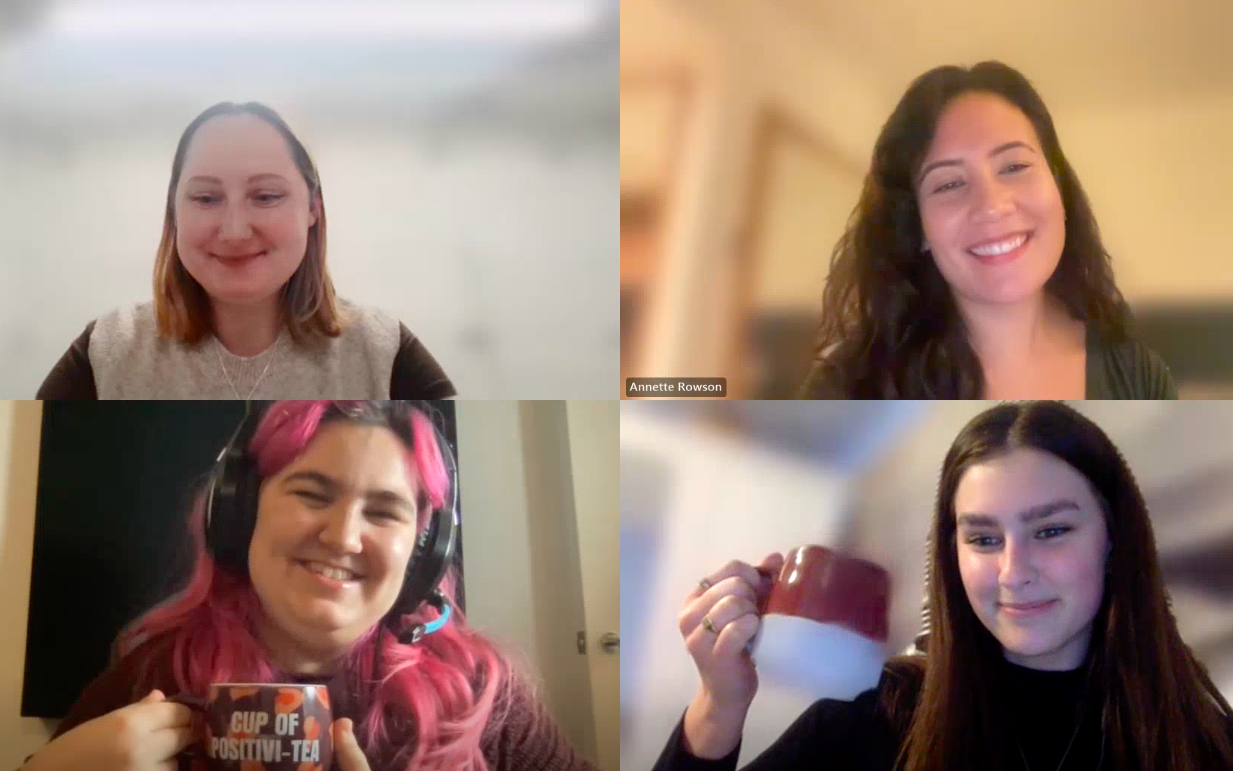
Bee – I would say try and surround yourself with people who have been in it and who are in it and who you can get advice from, joining networks, reading around the subject. It’s all about finding those people that are passionate about it, getting out to events because that’s where I learnt about it.
Annette – Experimentation is relatively still a niche thing, I think sometimes what you have to do is go looking to find the opportunity if it’s not right in front of you. If anyone was approaching Experimentation thinking, ‘Oh no, I’m no good at numbers!’ It’s not just about that, it’s so much more and you can play to your strengths. Of course you need an understanding and need to know the theory and processes, but I would probably say one of the biggest things is stakeholder management and communication.
I’d definitely say do as much reading as possible, it’s a forever changing environment, with new testing tools popping up all the time, different ways of testing too, so keeping up with the trends and news around it will elevate you more in any interviews.
Marija – Keep persisting! Even if you don’t get where you’re trying to go, you’ll get to somewhere you need to be. There is always a way.
Annette – It’s more important for women, we should be gunning for things that give us a happy life, no sacrifices, no compromises, you do what you want.
I think that’s one big thing we need to be ambassadors for. We need to celebrate that it’s something we can actually do now and take advantage of.
End of part one
As we conclude this first part of our celebration of women in digital Experimentation, we hope you have been inspired by the stories and insights shared by Annette, Marija, Bee, and Hannah. Their experiences underscore the importance of fostering a culture of experimentation, embracing diversity, and advocating for inclusivity within the industry, and their dedication to continuous learning, collaboration, and empowerment serves as a beacon for aspiring professionals in the digital industry.
As we look ahead to part two of our celebration, we will uncover more insights, stories, and inspiration from women in digital Experimentation.
